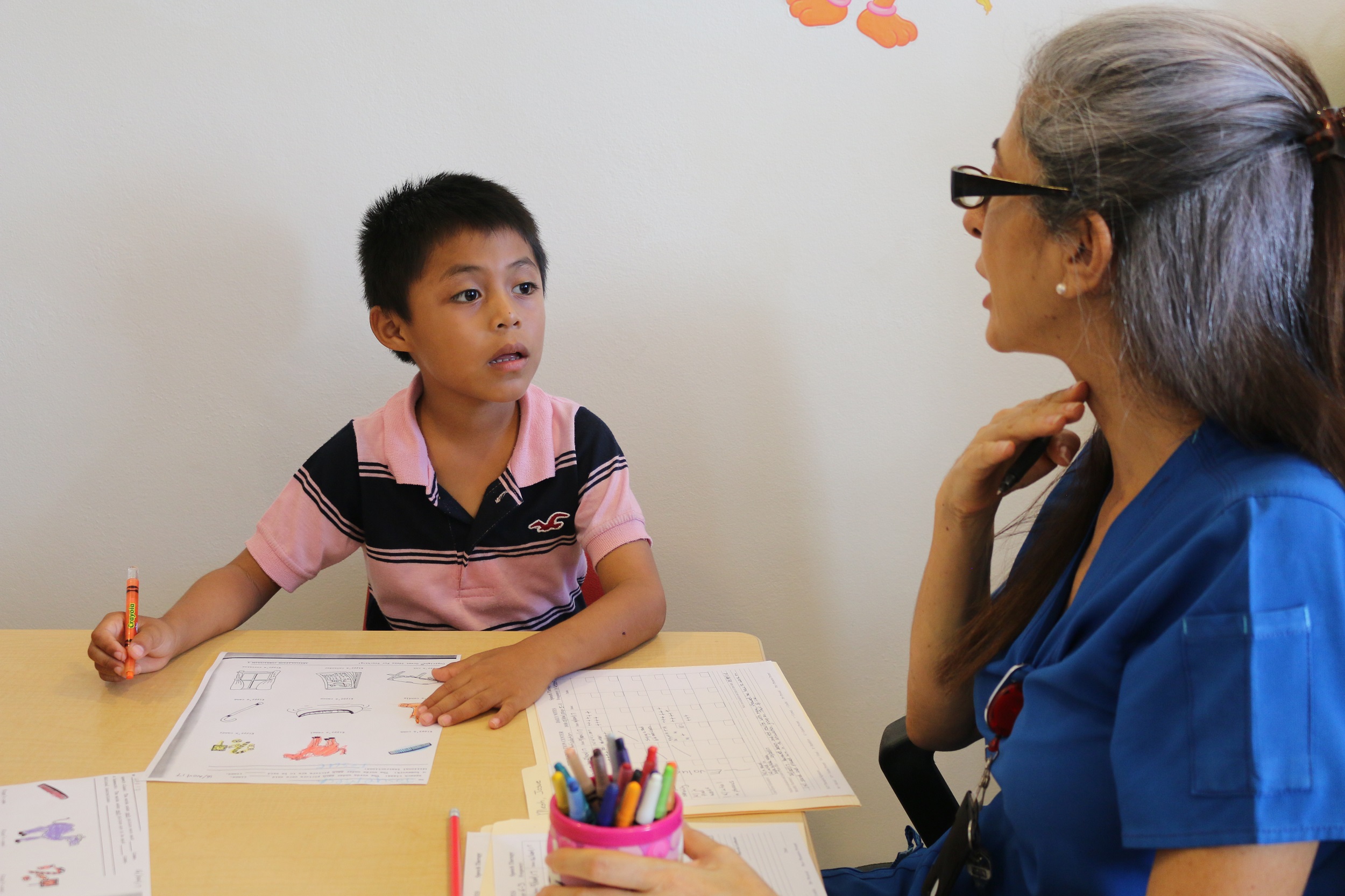What Does a Speech Therapist Do?

At TIC, our visiting speech therapists evaluate and provide therapy for children who have speech and language disorders or delays. We work with children with a variety of diagnoses such as cerebral palsy, Down syndrome, attention-deficit/hyperactivity disorder (ADHD), developmental delay, hearing impairment, and autism spectrum disorder (ASD).
Some of the speech disorders our speech therapist treats include:
Articulation Disorders and Delays
Children may have trouble pronouncing words or sounds. For example, a child may say “tat” instead of “cat.” A speech therapist can teach proper pronunciation that will enable a child to speak intelligibly.
Language Disorder or Delay
Children may have impaired comprehension and/or use of spoken language.
Pragamatics
Children may have difficulty using language functionally in a social situation.
Fluency
Children may have difficulty speaking without stuttering or an interruption in the flow of speech.
Dysphagia (difficulty swallowing)
Weak mouth and throat muscles can make it difficult to swallow, eat and drink. Using a combination of VitalStim Therapy (electrical stimulation) and practice swallowing can strengthen the necessary facial muscles used for swallowing and articulation.
Hearing Impairments
Children may have hearing loss and require the use of hearing aids.
Does My Child Need Speech Therapy?
As your child grows, he or she will develop sound and language skills. It is important to know the developmental stages of language.
At two years old, your child should:
- have a vocabulary of at least 300 words
- speak in sentences that are two-three words long (“What is that?” “I want milk.”)
At three years old, your child should be:
- able to listen to a story with pictures for six-seven minutes
- intelligible 80% of the time with strangers.
- making normal sounds, even if he or she isn’t using them correctly.
If your child is not reaching these speech and language developmental milestones, he or she may need to visit a speech therapist.
How Can You Promote Proper Speech and Language Development at Home?
- Read books with pictures.
- Act as a good speech model. Do not use baby talk.
- Repeat new sounds and words over and over.
- Ask questions to stimulate language.
- Pronounce words clearly and slowly.
- Look at your child when you talk to him or her.
- Let your child watch your face, lips and tongue as you speak and form words.